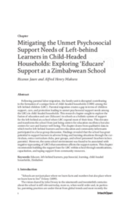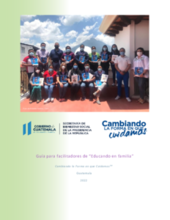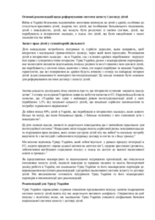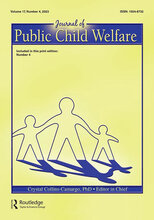Demographic Data
|
Sources: World Bank, UNICEF, UNDP HDR 2015, DHS 2013 |
Displaying 971 - 980 of 14551
Providing a safe and non-hostile environment for growth is every child's right. Need of Care and Protection (CNCP) and those in conflict with the law. This article discusses the limitations of institutional care and why there is a need to shift focus to Family-Based Alternative Care services (FBAC), especially in the context of COVID-19.
This exploratory, sequential, mixed-methods study analyses factors that enhance the provision of psychosocial support services and the perceptions of educators towards psychosocial support delivery to orphaned and vulnerable learners in Eswatini.
This research chapter sought to explore the fusion of education and care in schools in Zimbabwe as a holistic system of support for the left-behind at a school where left-behind children expend most of their time.
This World Health Organization (WHO) progress report looks back on the five years since the Nurturing care framework was launched. It documents achievements and presents areas for future action. Annotated with stories of change, the report provides a snapshot of progress in relation to each of the five strategic actions of the Framework and shows the breadth of activities that have been undertaken.
La Guía para facilitadores de “Educando en Familia” es una guía realizada por “Cambiando La Forma en que Cuidamos Guatemala” y está basada en la metodología de Educando en Familia de la Secretaría de Bienestar Social de la Presidencia de la Republica de Guatemala, la guía proporciona herramientas, dinámicas y técnicas para trabajar el programa con grupos de padres, madres y cuidadores; la guía está dirigida a las personas que facilitan el programa o que están certificados para replicarlo por SBS.
This ECDAN webinar discussed the current state of parenting support in crisis, efforts to deliver parenting interventions, and recommendations for delivery.
Шістнадцять неурядових організацій, які мають досвід захисту дітей, інклюзії з обмеженими можливостями та прав людини, закликають Уряд України та його міжнародних партнерів виконати ці ключові рекомендації щодо розвитку інклюзивної системи захисту
The aim of this child-centered project is to provide the opportunity for children who have experienced hostile environments and inappropriate care to become aware of, regulate, and express their inner socio-emotional world via tactile and visual experimentation with eMoBo so that they might more easily communicate their feelings and needs with non-biological caregivers, striving for a significant, long-standing improvement in the wellbeing of these children. In this paper, the authors present our designs and envision their use in two use cases.
In this UK-based study, the relationship between levels of dissociation, several pre-placement factors and other background variables was explored to facilitate understanding of the high prevalence of dissociation in adolescents living in care.
This US-based study examines the perspectives of families and professionals on child welfare practice during the COVID−19 pandemic.








